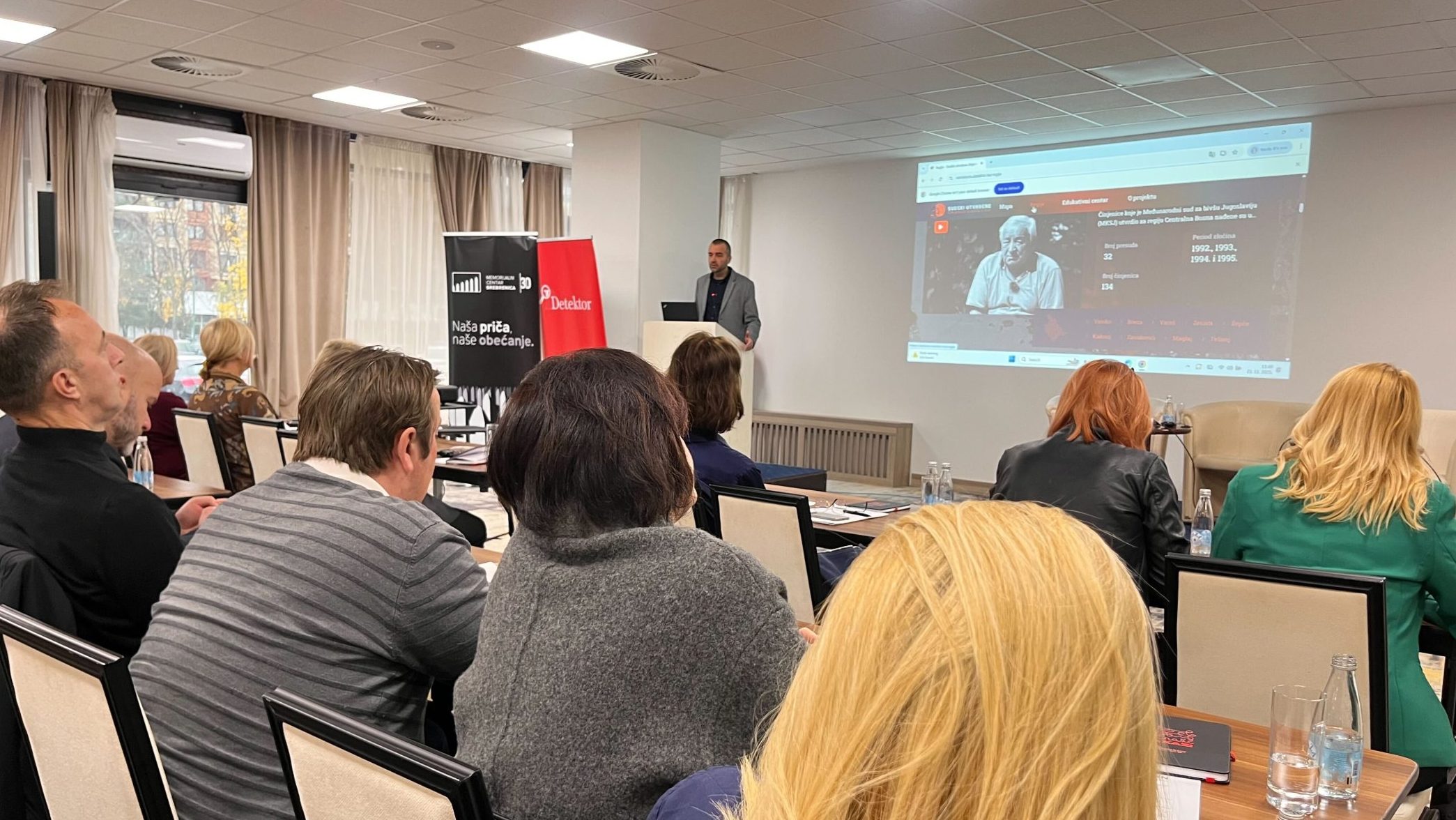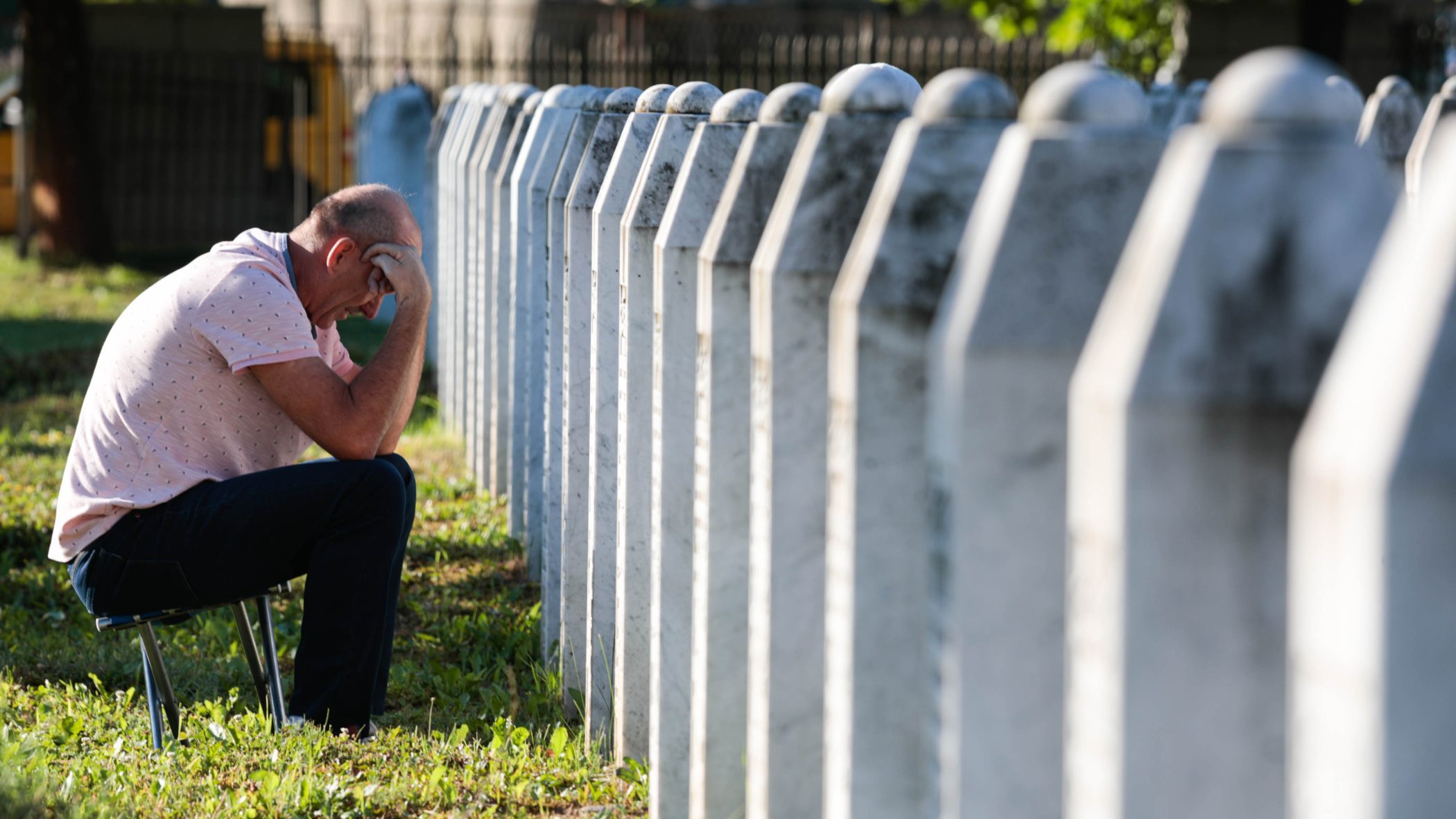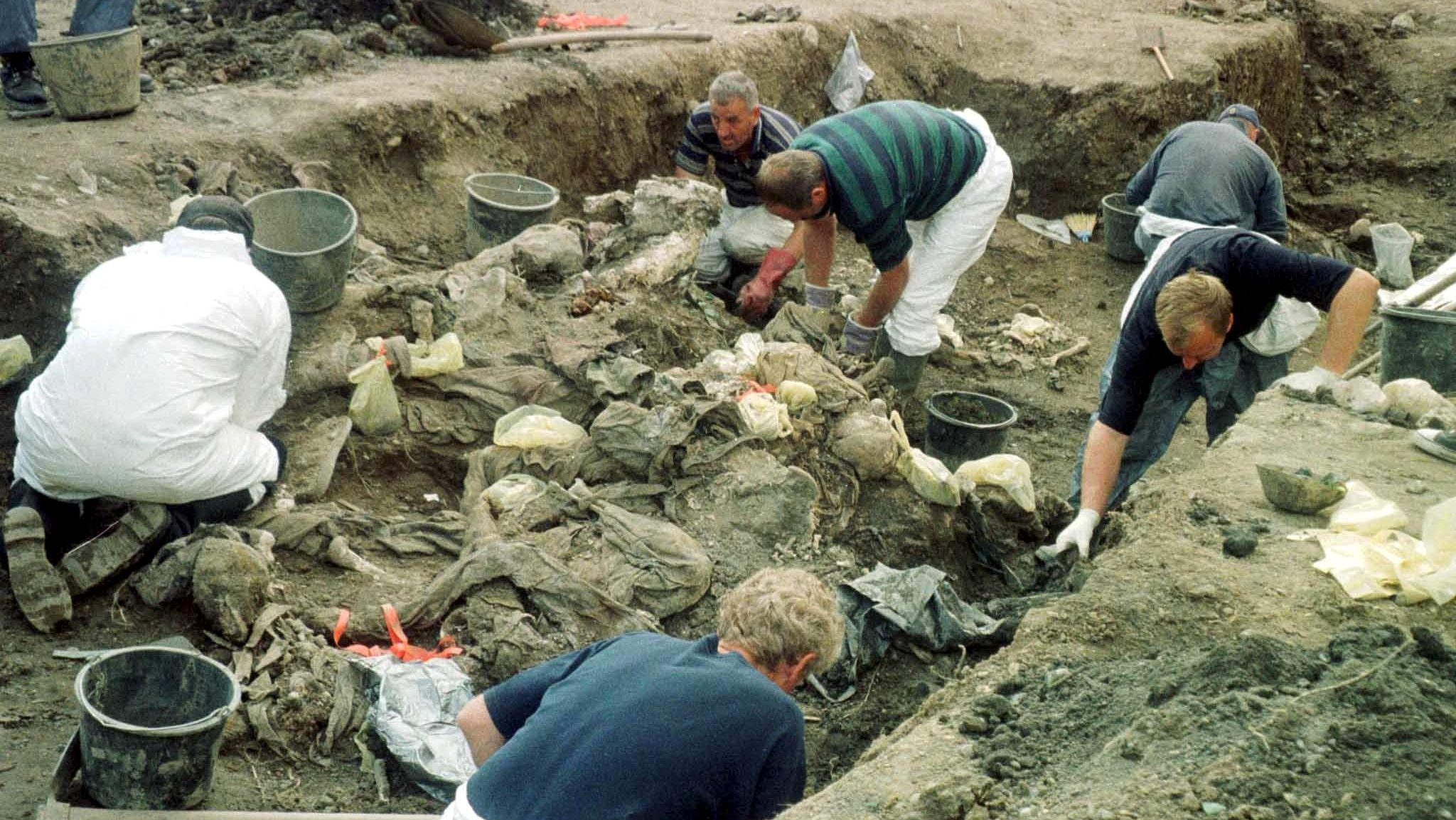This post is also available in: Bosnian
Twenty-two years ago, Serb paramilitaries stopped a train in Bosnia, seized 20 passengers and killed them – and only now is there a possibility that most of the suspects will face justice.
Just above the village of Strpci, a Bosnian settlement on the Serbian border, stands a nondescript local railway station.
Express train number 671, which used to travel from Belgrade to Bar on the Montenegrin coast, stopped here just once, on February 27, 1993. For 20 of its passengers, all of them non-Serbs, it was the end of the line. They were taken off the train and killed.
On that day, a group of fighters led by Milan Lukic, the chief of the ‘Avengers’ paramilitary unit, ordered the local station manager to halt the express. At about 4pm, the train stopped and the fighters entered and asked the passengers for their documents. As they read out their names, they started dividing up the passengers and forcing some of them to get off the train.
Most of those who were seized were Bosniaks who lived in Serbia and Montenegro. There was also one Croat who was travelling to Montenegro to visit his son, and another young man who was never identified.
They were taken by truck to a school in the village of Prelovo near Visegrad. There they were robbed and beaten, and then taken onwards to the nearby village of Musici. They were killed in a burned-down house and their bodies were thrown in the Drina River.
“When I am reminded of that, everything that happened in the past, believe me, it’s no easier. I feel the same as I did when it happened,” said Misin Rastoder, the son of one of the victims, Jusuf Rastoder.
The remains of his father and three other passengers were found in Lake Perucac on Bosnia’s border with Serbia. The other families are still searching for the remains of their loved ones. One of them is Nail Kajevic from Prijepolje in the southern Sandzak region of Serbia, whose brother Nijazim is still missing. Nine of the 20 victims came from the town.
Remembering the first days after the abduction, Kajevic says he went looking for his brother with other family members, initially believing that the Serbian state would help them because, officially at least, it was not involved in the conflict in Bosnia.
“These were people who weren’t engaged in politics or the military. We believed the state would search for them, since they were citizens of Serbia and Serbia wasn’t at war,” Kajevic recalled.
While Kajevic searched for his brother, about 50 kilometres away, in the village of Savin Bor in northern Montenegro, Misin Rastoder learned of his father’s abduction. Jusuf Rastoder, who worked for a company in Belgrade, was coming home for a vacation on February 27, 1993.
“There were no phones then so we could learn about the disappearance immediately. After four or five days, his colleague came and brought us his pay cheque and that’s how we learned he was missing. We went to the Berane municipality and reported it and the search began,” said Rastoder.
Search without end
The search, they believed, would last for several days, but turned into months and then years of waiting. During that time, various rumours about the abducted passengers reached the families. For a while, Kajevic recalled, people said that they were being forced to work in a mine in Serbia.
“We formed a board to coordinate with the authorities. The board was received by Slobodan Milosevic and he – at least that’s what the board thought – was interested in helping. He came to Prijepolje and met us. He said he and Serbia was overturning every stone to bring our relatives back dead or alive, and punish the perpetrators,” Kajevic said.
After these promises, the families went home, certain that their missing relatives would be found. Only later did they realise the promises were a strategy designed to buy time, since the authorities had no intention of helping them.
In desperation, they protested, held a hunger strike, and visited Belgrade in a bid to get help, but after several years, they had to face the fact that their fathers, brothers and sons were dead.
“Later, Filip Vujanovic, who was interior minister , sent a telegram of condolence. That was when we finally realised that those people weren’t alive,” said Kajevic.
The families in Serbia however didn’t even get a condolence telegram. There the abduction had become a taboo subject, and the families had no way of continuing their search.
The first details about what actually happened emerged at the trial of Nebojsa Ranisavljevic, one of Milan Lukic’s fighters, which began in 1998 in Bijelo Polje in Montenegro.
During the trial it was proved that there was an advance plan for the abductions and that the Serbian railway company had informed the interior ministry in Belgrade and the Yugoslav People’s Army about the possibility of seizing the passengers.
“That trial was painful,” said Kajevic. “We learned that it was no careless act by a group or an individual, but a planned action by Bosnian Serb forces with the Yugoslav Army, and that the highest authorities knew about the abduction.”
Ranisavljevic was sentenced to 15 years in prison in 2002 for taking part in the abduction and killings. His leader Milan Lukic was subsequently sentenced to life imprisonment by the Hague Tribunal for war crimes in the eastern Bosnian town of Visegrad, but not for the Strpci deaths.
A conspiracy of silence
Even though the names of the other alleged perpetrators have been known since Ranisavljevic’s trial, 15 suspects were only arrested in a coordinated operation staged by the Bosnian and Serbian prosecutions in December last year.
Dzemail Halilagic, a journalist from the Sandzak region who was the first reporter to document the stories of the families of the abducted men, said that for many years, there had been a “conspiracy of silence” about the Strpci incident.
“The state’s aim was for this crime to be forgotten and for the perpetrators to be forgotten,” Halilagic said.
He explained that in the 1990s, very few people were willing to speak publicly about crimes against Bosniaks.
“Still, what little was done helped the truth about Strpci and other crimes become public knowledge,” he said.
A memorial in Prijepolje on the edge of the River Lim, with the names of the nine people from the town who were abducted in February 1993, is currently the only monument to the Strpci crime.
The municipal authorities would not however allow the names of victims who weren’t citizens of Serbia to be inscribed on the memorial plaque, while the families of the victims from Montenegro are still waiting for approval to build a memorial to their loves ones in Bijelo Polje.
The families now hope that the recent arrests in Serbia and Bosnia and the possibility of new searches for human remains in Lake Perucac will finally deliver the truth.
“These were innocent victims who were coming home from work, after going to earn some bread for their families,” said Kajevic.
“They weren’t guilty of anything that would allow someone to claim they had a reason for stopping the train, marking some passengers out just because of their names, and destroying them.”




